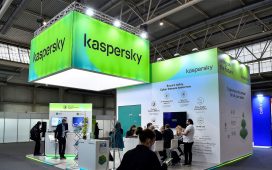Employees working with AI software to complete tasks at work are more likely to feel lonely, which can drive them to insomnia and drinking, according to a paper published by the American Psychological Association.
A team of researchers hypothesized that ML tools could make workers more socially isolated – if they spend more time on the computer and less time interacting with their colleagues. Although chatbots, for example, can mimic human communication, it is not typically meaningful and users do not receive the feedback associated with talking to other people.
AI will keep expanding, so we need to act now to lessen the potentially damaging effects
To try to confirm the idea, the academics focused on behaviors associated with loneliness, including poor sleep quality and drinking alcohol – although those two are directly related. They surveyed 794 workers using AI in their day-to-day jobs in the US, Taiwan, Indonesia and Malaysia. Participants were asked to complete a questionnaire detailing their interactions with AI, and report their behaviors and feelings over time.
“The rapid advancement in AI systems is sparking a new industrial revolution that is reshaping the workplace with many benefits but also some uncharted dangers, including potentially damaging mental and physical impacts for employees,” Pok Man Tang, first author of the paper [PDF] and an assistant professor of management at the University of Georgia, said on Monday.
“Humans are social animals, and isolating work with AI systems may have damaging spillover effects into employees’ personal lives.”
Tang and his co-authors found that participants who desire social connection with others and are more anxious about belonging at work are more likely to be impacted by AI. They tend to try and reach out and be helpful to their colleagues more, and report higher levels of insomnia and drinking after work. These behaviors were also more likely to be present in employees that spent more time using AI in their jobs.
The correlation between loneliness and insomnia and drinking varies – it was less strong in the 126 workers in Indonesia compared to the 214 employees in the US, for example. The results should be taken with a healthy pinch of salt, since correlation doesn’t imply causation. A range of factors are likely to affect participants’ sleeping and drinking habits, making it difficult to pin the blame on AI.
Still, the team believes employers should take this into consideration when deploying new technologies in the workplace. They should think about how to limit the time employees spend using AI and consider organizing time for people to socialize. Perhaps decision-making and strategizing should be human-led group activities, while software automates repetitive solo tasks, Tang suggested.
“Mindfulness programs and other positive interventions also might help relieve loneliness,” Tang said. “AI will keep expanding so we need to act now to lessen the potentially damaging effects for people who work with these systems.”
The Register has asked Tang for further comment. ®










